Friends of Branded!
Happy Saturday and I hope you had a great week!
Readers of the H^2 know that I’m a free markets person and my strong preference is to let the markets work things out for themselves.
Not to talk out both sides of my mouth or contradict myself, but I also don’t believe in self-regulation and hold a strong conviction that regulations are needed to act as safeguards and to protect consumers, as well as to protect industries from themselves. As a long-time financial and capital markets person, I welcome anyone to engage with me in a discussion (debate?) on why industries can’t be trusted to regulate or police themselves.
The driver of my thinking is not solely b/c of bad actors (although we do of course have bad actors and that’s one of the reasons regulators are needed), but mainly as a result of how people are driven and motivated by their own self-interest. Self-interest is a most powerful force and the key driver when it comes to decision-making (and can therefore create conflicts or at least incongruent interests).
My father likes to say that the most important skill an attorney can have is common sense. To be clear, while I often agree with my dad, on this point, I don’t. The reason for my disagreement is b/c I believe common sense is not only a critical skill for attorneys to possess but is a most important skill or quality for the people that work in so many industries (sorry dad, attorneys don’t have or deserve a unique or better claim on the need for common sense than others and it’s clear to me that most people need to have or develop this skill).
Despite the criticality of common sense, I understand and have come to learn that there are industries or jobs where the personnel have been asked to suspend common sense and instead embrace a more rules-based decision-making process.
Don’t believe me?
When was the last time you went to a sporting event or concert, ordered an adult libation, and weren’t asked to show proof of age? For example, at Yankee Stadium, I understand of course that guests must be 21 years of age or older to purchase or consume alcohol, but management at that venue has established a rule that proper identification is required of all guests and must be presented, regardless of age, to purchase any alcoholic beverage.
My 56-year-old self (and I don’t profess or pretend to have a babyface in any way, shape, or form) gets asked to present identification to order a beer and to take this one step further (or maybe better stated, a few decades older), my dad also gets asked for ID when he’s the one buying a round (although he does have a most youthful face and energy level).
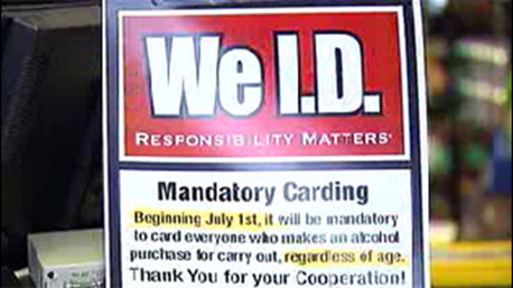
For avoidance of any doubt, I’m not bringing up this issue of the requirement of having proper ID to purchase alcohol here to complain, and I have no negativity around this policy at Yankee Stadium (or any venue adopting this policy). Management has simply suspended common sense from taking place and replaced it with rules-based decision-making (and that’s their right and their choice on how they wish to operate their business).
My overarching point, common sense is important, but it’s not always embraced, utilized, or even welcomed.
All the above is lead-in to an observation that may or may not be shared by others, and while I don’t believe this is necessarily an easy topic, I do think it’s an important one.
It seems to me that the US government (at the local, state and federal levels) is targeting the restaurant industry to legislatively induce unionization. Over the past few years, the legislative headwinds hitting the restaurant industry have become more pronounced and as a person that 'calls them likes I see them,' I see these legislative headwinds as being detrimental to restaurant owners (and investors).
Here are just a few regulatory initiatives that are driving my view.
The abolishment of the tip credit, for example (which has now taken place in Alaska, California, Minnesota, Montana, Nevada, Oregon, and Washington), is materially shifting the full-service restaurant investment environment. The loss of the tip credit, which results in an increase in the cost of human capital, translates into an enhanced risk to full-service dining investments. The tip credit allows restaurants to deduct gratuities against hourly wages of their tipped employees, which means that restaurants are allowed to pay them less than the minimum wage as long as they make enough tips to bring them over the minimum wage.
Maintaining the tip credit is among the top concerns for the restaurant owners, while union-backed groups are pushing for a referendum to raise the minimum wage and end the tip credit.
The Fast-Food Accountability and Standards Recovery Act (aka, “The FAST Act”) is a California law which brings multiple reforms to the state’s fast-food industry. The bill's provisions aim to allow workers and California state to hold fast-food chains responsible for issues like wage theft and overtime pay, and established a council which itself shall be responsible for establishing minimum standards for fast-food workers. The regulations will apply to any chain in California that has at least 100 stores nationwide that share a common brand.
This bill received widespread support from labor unions and worker advocacy organizations and fierce opposition from the fast-food industry and various chambers of commerce. Seems like a decent a fight with strong players and advocates on both sides.
My question: why the regulators in California are taking a rifle shot at (i) the Fast-Food industry, (ii) with more than 100 stores, (iii) of the same brand. Seems like a fairly narrow and therefore targeted group, right?
A more macro question: why the focus and regulatory changes specifically on the restaurant industry?
Well, remember, the restaurant industry is among the most fragmented industries in the US. According to the Independent Restaurant Coalition, independent restaurants, although holding just 30% of total market share, continue to constitute over 70% of all US restaurants. I’ll also add that the restaurant & foodservice industry is the nation’s second largest private sector employer, providing 15.5 million jobs or 10% of the total US workforce.
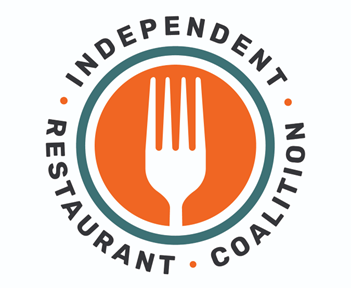
Let’s get back to common sense and I’ll add-in my favorite Milton Friedman theory, everyone is motivated by self-interest.
Regulators and the government are focused on the restaurant & foodservice industry b/c it’s the second largest employer in the US and it’s fragmented. The regulations being advanced favor the workforce b/c that represents a large number of voters, while angering the owners of this fragmented industry isn’t all that risky (until it is, which I expect it will be).
If the restaurant industry is fragmented, what are examples of concentrated industries? Great question.
- Four US airlines dominate the US airways (they control 84% of the US flights).
- Two phone companies, Apple and Samsung, control 77% of the smartphone market with 60% and 17% market share, respectively.
- The top 15 banks make-up 76.64% of the deposits for all banks in the US.
The above represent examples of concentrated industries where it’s the owners of these dominant companies that have the power. In the restaurant & foodservice industry, the fragmentation reduces the power and control of the owners and makes the industry’s workforce the focus and priority of regulators.
Simply stated (which I know I should do far more often), it’s hard for the government to get aggressive with owners of concentrated industries, but far easier for them to do it in fragmented ones.
The logic and importance for the government to want to address and try to improve wages for 10% of the US workforce is clear and I’ll even (take a risky position) give them the benefit of the doubt that their motivations are genuine (although poorly conceived and not well thought through).
In California, critics of the FAST Act argue (and they’ve brought the receipts) that the act will increase labor costs by 30% to 50%. These increased costs will either be addressed by removing human capital from these businesses, pass these higher costs onto the consumer by increasing fast-food prices by up to 30%, or both.
The elimination of the tip credit will increase the restaurant’s operating costs which will in turn result in the need for restaurants to raise menu prices, decrease its workforce or (and again), both. There’s also evidence that the elimination of the tip credit will result in tipped employees making less money.
None of the above should be construed to mean or suggest that the Branded Team doesn’t want hospitality workers to be well paid (and treated well). Restaurant and hospitality workers are among the hardest, most creative, and agile workforce anywhere. I just don’t think the government can do a better job creating the right balance between the owners and workers than, well, the owners and workers themselves.
I don’t ever expect any relationship to be perfect, and I always expect there is the opportunity and need for improvement, but these regulatory changes will have both intended and unintended consequences. Owners are not going to be forced to add operational costs and simply accept these higher costs being imposed onto their businesses. They will pass these costs onto the consumer and / or adjust their business models in order to make them less reliant on human capital.
If you want to see a most recent about-face to regulation, I can use the recent 11th hour and unexpected demise of the congestion pricing plan in New York City.
New York spent years and the Metropolitan Transit Authority even signed a $500 million contract to install equipment related to the plan across Manhattan. New York City’s congestion pricing plan was the most consequential and ambitious urban transportation plan in the nation and its demise came down to something rather simple and straightforward, the people (voters) that would have paid for the tolls.
Of course, there was backlash from the people that would have paid the tolls, that was obvious, but an unintended consequence of congestion pricing was going to be the people that were impacted by those paying the tolls that were going to pass the increased expense along to them.
If the folks driving (pun intended) the congestion pricing plan forward thought the trucking industry and delivery companies, for example, were going to eat the costs of the tolls, that was a very poor assumption (and displayed a complete lack of common sense). The cost of the deliveries was going to increase and the cost to the consumer was going to increase as well. This was the unintended consequence New York’s Governor was not prepared to accept (and certainly not ahead of her efforts to be re-elected).
I recognize this week’s Top of the Fold section isn’t as fun (or funny) as others I’ve authored (but in the immortal words of Joe Pesci, “what am I, a clown, am I here to amuse you? Funny how?”). 😊
Sometimes, when something looks like a duck, sounds like a duck, and acts like a duck, it’s a duck!

As the regulatory changes continue to come and each one appears to negatively impact an industry that is often credited with being new talent's first job, the response from the industry will be significant as well as not perfect.
My comment about the hospitality industry being the first job for so many people isn’t a thruway line whatsoever (I write a lot (yes, too much), but I do so with intentionality).
Facebook ran a study using the hashtag #FirstSevenJobs and the results revealed that 7 of the top 20 jobs are in or connected to the hospitality industry.
Schatz and I hosted a podcast event at a conference where we had 6 CEOs of major restaurant companies on the show and 5 of the 6 started their respective careers in hospitality industry as a dishwasher.
Yes, we want the first job to be a good job, a fair job, and a good-paying job, but it’s still a first or early-stage job and if regulation makes it too expensive for owners, then the opportunities that have traditionally gone to new talent will be threatened (if not lost).
I don’t know a more democratized industry than the restaurant & foodservice industry and the roadmap to a career continues to evolve, improve, and become more attractive. The digitalization of the industry is also contributing to the need for talent and an expansion of the roles the industry needs to develop and recruit.
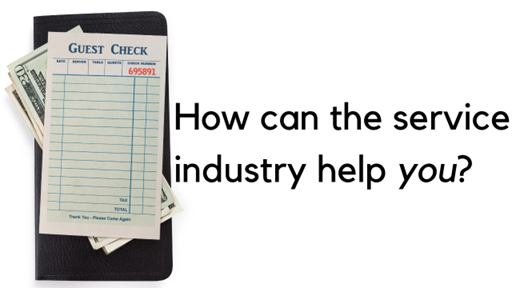
I think the hospitality industry is on the very positive side of the ledger when it comes to industries that embraces, develops, and advances new talent. I know we need regulations to protect the consumers, our workforce and to protect us from ourselves, but I believe the one-sided nature of the current regulatory environment will have consequences. From where I sit, these regulatory initiatives may well negatively impact the opportunity to make our industry an awesome first and early-stage job and the start of what could be an amazing career for so many people with talent, drive and an enthusiasm for our industry.
Regulatory environments, like the markets themselves, can and do swing wildly in both directions. My hope is that those that are empowered to create and push these regulations forward are speaking (or will speak) to all sides of the industry and that must include the folks that are deploying and risking the capital that is required to make this industry work.
This Top of the Fold article this week isn’t against our industry’s workforce, but when I see an imbalance or acts that suggest we’re heading down a difficult and even dangerous path, I call it out.
I’d welcome thoughts on this topic for an array of industry folks and from all angles. We can disagree and still learn a great deal from one another. I hope this morning I’ve started and opened a discussion that’s worthy of your participation, b/c more than anything else, that's what this week's Top of the Fold section is about.
It takes a village.


This week’s shoutout goes to our friends and partners at Big Chicken and specifically the launch of its first unit in the great state of New Jersey (did you know that’s where Schatzy is from?).
Big Chicken had a BIG bash at The Village at Bridgewater Commons and the first 34 fans in line were given the opportunity to vie for the ultimate opportunity – free Big Chicken food and drinks for a year, limited to $10 a week – all while chowing down on the brand’s mouthwatering menu items that fuse bold flavors with Founder Shaquille O’Neal’s home-cooked childhood favorites.
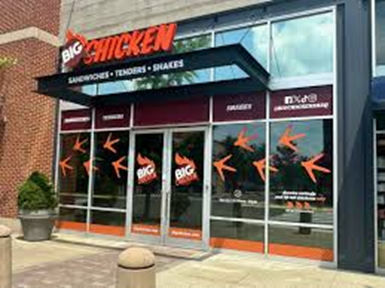
The inaugural opening in Bridgewater marks the commencement of a six-unit agreement unveiled last year with business partners, Aditya “Adi” and Chad Patel, distinguished veterans in the restaurant industry and natives of the region.
Pulled from the announcement in QSR Magazine, “We’re so excited to welcome Newark native Shaquille O’Neal back home, in the tastiest possible way, and to partner with Adi and Chad Patel,” says Troy Fischer, Senior General Manager at Bridgewater Commons. “Their choice to make Big Chicken’s Garden State debut at Bridgewater Commons is a testament to our efforts to create an extraordinary dining destination. We can’t wait to have them join one of the most vibrant restaurant communities in Central New Jersey.”
This Branded portfolio company continues to grow and expand its footprint. Some people tell me I’ve been writing too many times about this specific company, but I’ve said that as long as they keep opening new stores and doing BIG fun things, I’m going to keep giving them shoutouts.
Besides, one of Dr. Shaquille O’Neal’s BIGGEST fans is also one of my BIGGEST bosses and seeing Big Chicken in the H^2 makes her happy. You wouldn’t want me to disappoint my boss, would you? 😊


A little continuation from the Top of the Fold section, my concerns about the regulatory environment and one of Branded’s newest companies of focus, LDV Hospitality.
A new bill is being advanced in New York that has both the hotel and restaurant industries concerned. The bill is being framed as a safety and cleanliness issue and has created a battle between hotel restaurant owners against members of New York City Council and the politically powerful hotel workers’ union representing over 30,000 hotel and casino employees in New York and New Jersey.
You can read about the issue here in an article from our friends at Eater New York: Hotel Restaurants Fear for Their Future Following Controversial New Bill
Branded is proud to be a supporter of the NYC Hospitality Alliance and how they act as the leading voice for NYC’s restaurants and nightlife industry (we appreciate you Mr. Andrew Rigie and your entire team).
While the legislation has many parts affecting different stakeholders, the NYC Hospitality Alliance is primarily focused on a provision that would have severe consequences for restaurant, bar, and nightclub companies that run food & beverage operations in hotels via a lease and/or management agreement. If enacted into law, this legislation will essentially terminate countless leases and management agreements as they’re structured between third-party food & beverage companies and the hotels in which they operate.
I’m using the Access Hospitality Network section to highlight this issue for two specific reasons.
First, b/c Branded’s H^2 newsletter is fortunate to have a growing audience which includes an army of industry subscribers, I want to highlight this issue and share Branded’s support of the NYC Hospitality Alliance’s position that this bill is a dangerous one for restaurant owners.
Second, as Branded is advancing with an elite and desired restaurant owner / operator that has partnerships with hotels, LDV Hospitality, I feel fortunate to be prepared for whatever way the proposed legislation goes.
There’s a short list of operators that have the type of expertise in bringing not only food & beverage, but energy and sizzle to hotels and Branded’s is incredibly proud and excited about our work with LDV Hospitality.
The path this legislation takes is above my paygrade, but as a fiduciary and person responsible for capital and investments, this group that is expanding its already remarkable footprint in NYC represents a tremendous opportunity for Branded.
You can expect to hear a great deal more about LDV Hospitality in the weeks and months ahead. This restaurant company is doubling down on New York City and as a native New Yorker, I'm excited to be on their team and supporting their acceleration and expansion.
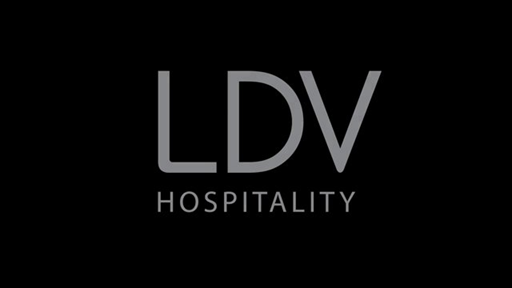

The Cloud-based Software Keeps Your Kitchen Moving
With ConnectSmart® RecipesPlus, your kitchen keeps up. Easily update recipes across every restaurant, search recipes instantly, and more.

In this week's Olympics summer rewind episode of the Hospitality Hangout, Michael Schatzberg “The Restaurant Guy” and Jimmy Frischling “The Finance Guy”, sit down with G.J. Hart. Currently at the helm of Red Robin as President, CEO, and Director, Hart's journey from the Netherlands to leading a renowned American food brand is nothing short of inspiring.
Arriving in the U.S. in 1963 with dreams of freedom, Hart's initial foray into the hospitality industry was with Howard Johnson's, toggling roles from a dishwasher to a short-order cook. His professional odyssey then took a detour into the poultry business, helping fund his college education. A move to New Orleans saw Hart working under Al Copeland of Popeye's fame, subsequently partnering with Texas Roadhouse's founder, which they took public. Though Hart dabbled in the idea of retirement, his passion was unwavering. Drawn back to the restaurant cosmos, he took the reins at Red Robin, a brand he had admired for decades.
You can tune in on Spotify, Apple, Amazon, iHeart, or your favorite listening platform!

TECHNOLOGY
6 Ways to Stay Motivated When You're Just Not "Feeling It"

By: Seth Temko, Solutions Services Partner at Branded Hospitality Ventures
Motivated people can move mountains. I know it's always been true in my life. But a highly motivated lifestyle can be like an adrenaline rush... it burns out and you crash. Often a motivation crash is through outside forces you didn't count on or situations that are counter to your inspirational core. True and lasting motivation is a journey within.

Welcome to the new IFMA
The future of food-away-from-home is evolving—and so is our membership structure.
MARKETING
5 Simple Ways to Increase Online Orders AND Decrease 1-Star Reviews
By: Rev Ciancio, Head of Revenue Marketing at Branded Hospitality Ventures
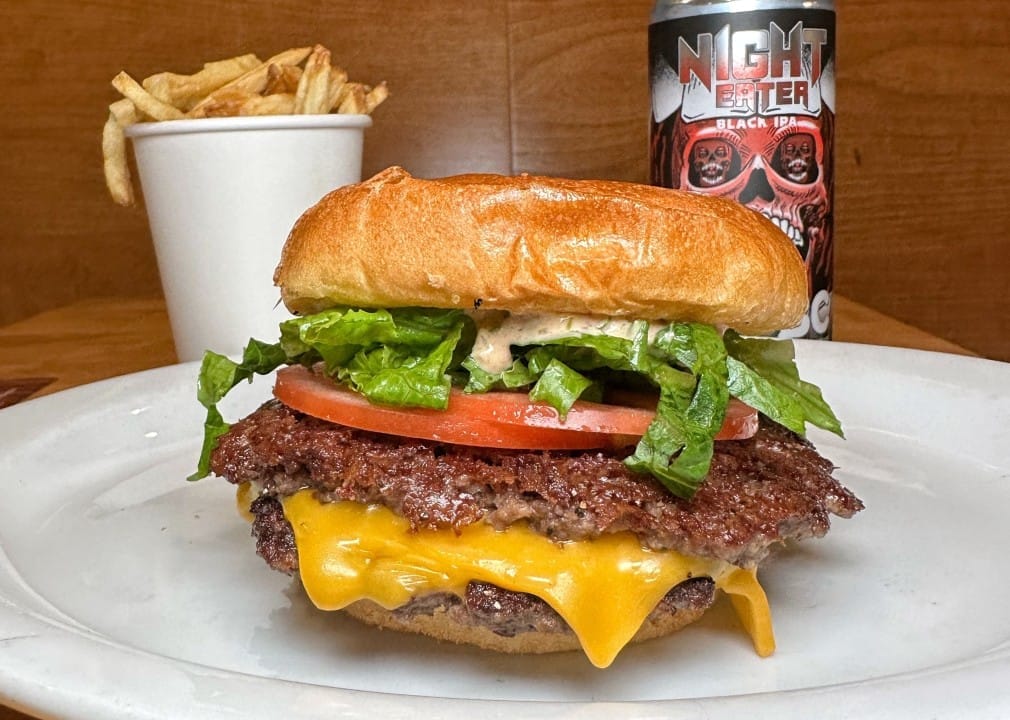
Do you want to get more online orders at your restaurant? There are some small changes you can make today that are guaranteed to create a guest-pleasing scenario that will not only get you more orders, but it will decrease 1-star reviews.
ASK THE HEADLINE
🔍 Got Questions? We've Got Answers! 🌟
Satisfy your thirst for knowledge? Look no further! It's time to dive into our brand-new segment: "Ask The Headline"! 🎉
📅 We'll be answering YOUR questions every week. And here's the best part: you can choose to stay anonymous or receive a fabulous shout-out when we feature your question!
Would you like to contribute? Share your article with us, and it could be featured in our headline!
That’s it for today!
See you next week, (about the) same bat-time, same bat-channel.
It takes a village!
Jimmy Frischling
Branded Hospitality Ventures
jimmy@brandedstrategic.com
235 Park Ave South, 4th Fl | New York, NY 10003
Branded Hospitality Ventures ("Branded") is an investment and advisory platform at the intersection of food service, technology, innovation and capital. As experienced hospitality owners and operators, Branded brings value to its portfolio companies through investment, strategic counsel, and its deep industry expertise and connections.
Learn more about Branded here: Branded At-A-Glance




